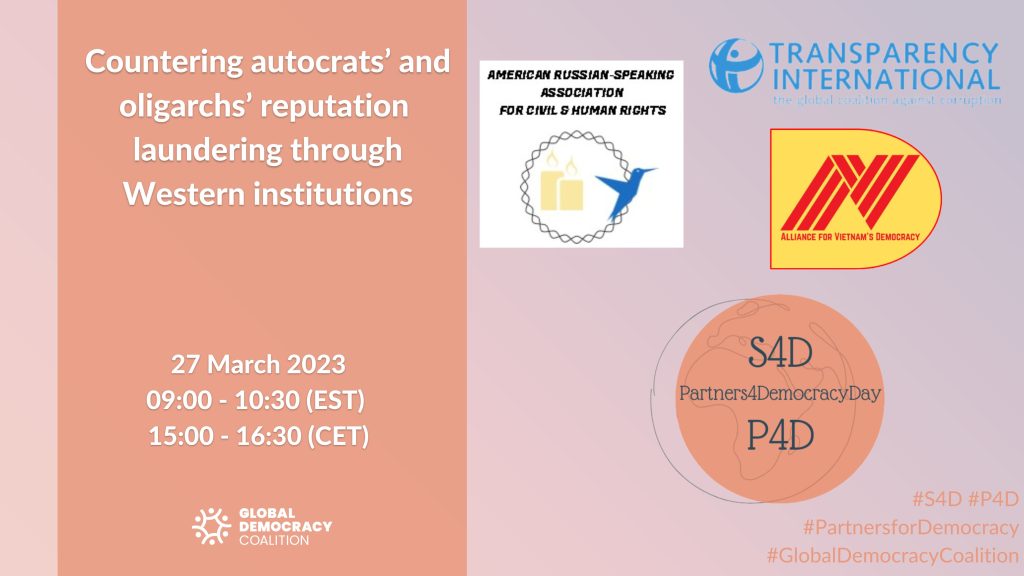
Countering Autocrats’ and oligarchs’ reputation laundering through Western institutions
Corrupt influences by undemocratic foreign actors trying to infiltrate and undermine democratic institutions have been properly identified as a major threat to our societies. In recent years, the understanding of what constitutes corruption has become deeper and more broadly encompassing than it used to be. Reputation laundering is widely recognized as one of its key elements. As noted in the U.S. Government Strategy on Countering Corruption, “rule-of-law-based societies continue to provide entry points for corrupt actors to launder their funds and their reputations. Such activity negatively impacts average citizens in the United States, tilting the economic playing field against working Americans, enabling criminals to flourish and foreign adversaries to subversively peddle their influence, perpetuating growth-dampening inequality, and contributing to pricing out families from home ownership through real estate purchases.”
This discussion sought to bring attention to the organizers and participants of the 2nd Summit for Democracy of the practices of corrupt reputation laundering in the public and nonprofit sector. This type of foreign autocratic interference in the functioning of democratic societies has not been properly analyzed and understood, let alone addressed by our society and government. It is not just about foreign oligarchs’ attempts to buy recognition from established American and European institutions that become their enablers; it also frequently involves efforts to distort these agencies’ narratives in the oligarchs’ favor and to silence their critics in democratic societies, including in their own diasporas (which is a form of transnational repression). To achieve this, authoritarian governments and their quasi-private sector allies at times are able to hire former top officials of key Western governments, including from the military, to advise them on influencing or to try and directly influence the policies of the U.S. and other democracies.
The speakers addressed the above issues from different angles, including the perspectives of anti-corruption experts in Western societies and the viewpoints of community organizers in the diaspora, and provide their recommendations on addressing this issue.
- Panelists
- Gary Kalman – Executive Director, Transparency International U.S.
- Dmitri Glinski, Ph.D. – Managing Director, ARA
- Olga Lautman – Senior Investigative researcher & international investigative coordinator at the Institute for European Integrity (IEI), and Senior Fellow at the Center for European Policy Analysis (CEPA)
- Ilya Zaslavsky – Head of Underminers.info, research project on post-Soviet kleptocracy
- Dr. Nhatthien Nguyen, Ph.D. – Adjunct Professor of Criminal Justice at the University of Houston Downtown and President of Vietnam Democracy Center
- Hai Cao – Researcher and Vice President of Dai Viet National Party
